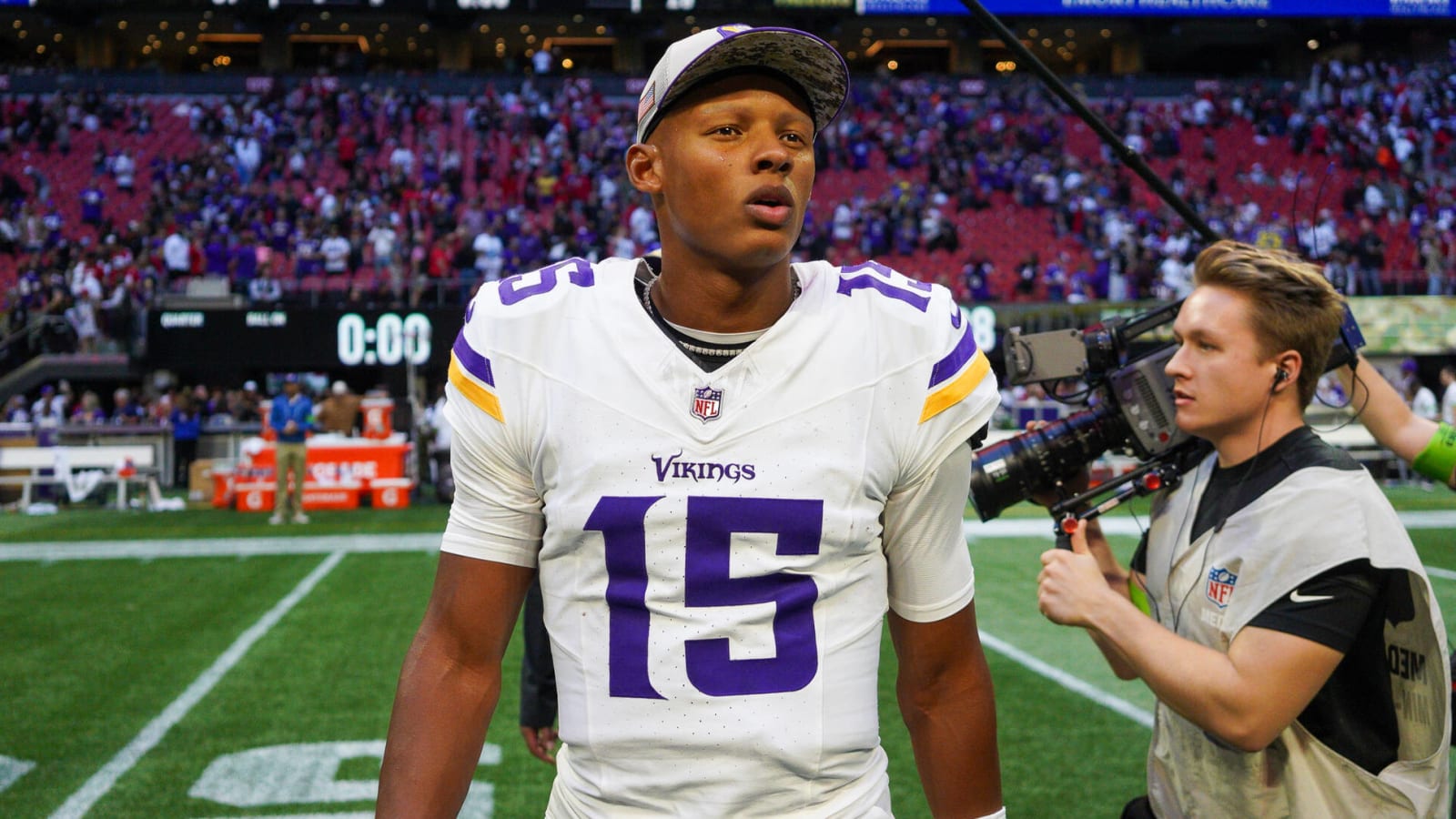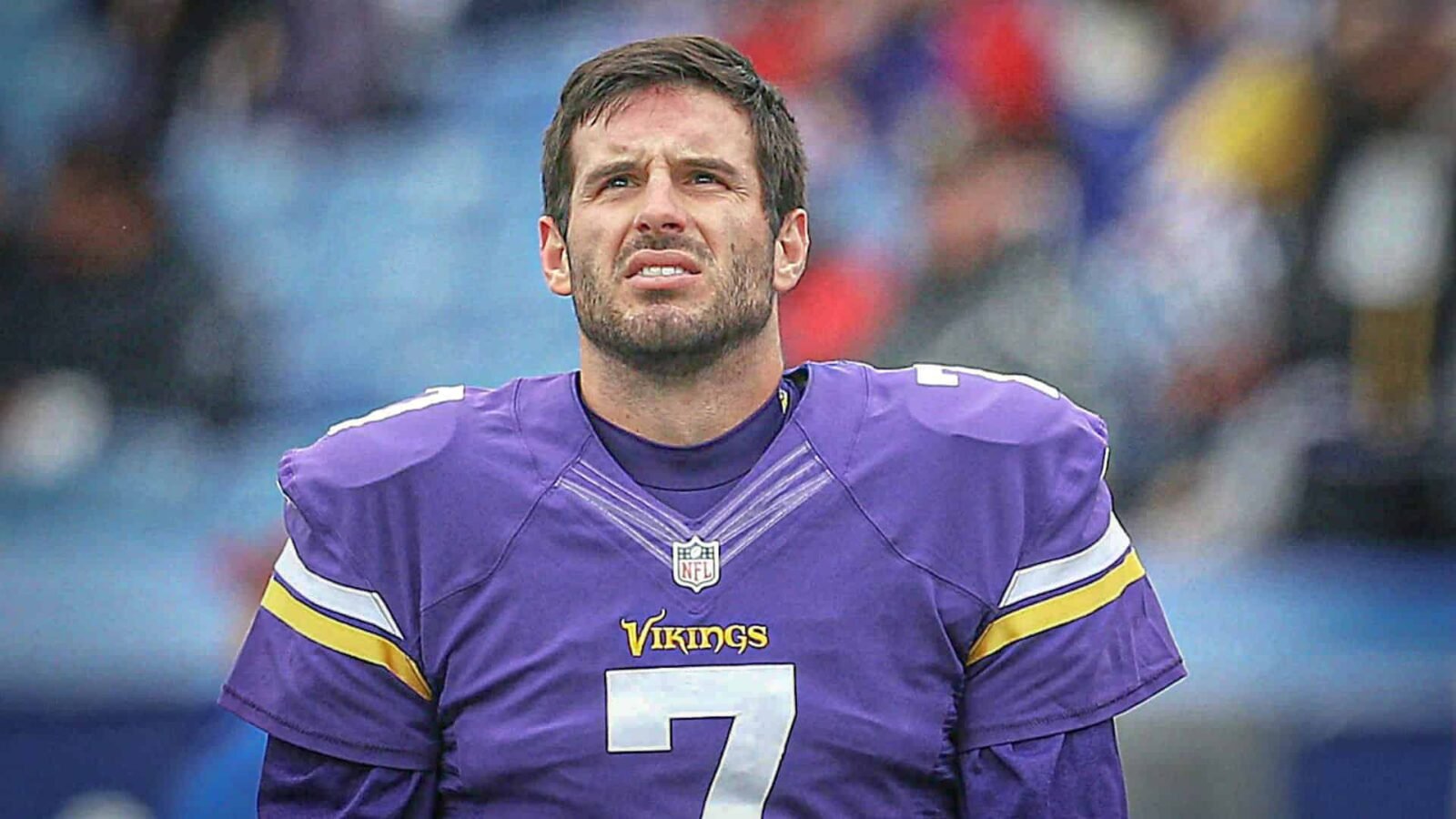Vikings Quarterback History

The Minnesota Vikings have a rich history, and their quarterbacks have played a significant role in shaping the team’s legacy. From the early days of the franchise to the modern era, Vikings quarterbacks have left their mark on the NFL, showcasing exceptional talent, leadership, and a relentless pursuit of victory.
Fran Tarkenton
Fran Tarkenton, the original “scrambler,” revolutionized the quarterback position with his unique style of play. He was known for his exceptional mobility, his ability to extend plays, and his knack for making throws on the run. Tarkenton’s impact on the Vikings was immense. He led the team to four Super Bowl appearances, and his dynamic playmaking ability helped establish the Vikings as a force to be reckoned with in the NFL. Tarkenton’s influence extended beyond the field, as he became a popular figure in Minnesota and a symbol of the team’s success. He was inducted into the Pro Football Hall of Fame in 1986, solidifying his status as one of the greatest quarterbacks in NFL history.
Tommy Kramer, Vikings qb
Tommy Kramer was a gunslinger, known for his powerful arm and his ability to make throws into tight windows. Kramer led the Vikings to two Super Bowl appearances in the 1970s, showcasing his toughness and his ability to lead under pressure. While he wasn’t as mobile as Tarkenton, Kramer was a formidable passer who could consistently make big plays. He was a fan favorite in Minnesota, and his competitive spirit resonated with Vikings fans. Kramer’s contributions to the Vikings’ success during a pivotal era cemented his place in team history.
Wade Wilson
Wade Wilson was a steady and reliable quarterback who played a key role in the Vikings’ success during the 1980s. He was known for his accuracy, his ability to manage the game, and his leadership qualities. Wilson led the Vikings to their first NFC Championship game appearance in 1987, showcasing his ability to lead the team to victory. His contributions to the Vikings’ success during a period of transition earned him the respect of his teammates and fans alike.
Daunte Culpepper
Daunte Culpepper was a dual-threat quarterback with exceptional athleticism and a strong arm. He brought a new dimension to the Vikings’ offense, combining his rushing ability with his passing prowess. Culpepper led the Vikings to the NFC Championship game in 2000, showcasing his ability to make big plays and inspire his teammates. However, his career was cut short due to injuries. Despite his shortened tenure, Culpepper’s impact on the Vikings was undeniable, as he brought excitement and a dynamic style of play to the team.
Brett Favre
Brett Favre, a future Hall of Famer, arrived in Minnesota in 2009 after a legendary career with the Green Bay Packers. Favre’s arrival in Minnesota generated immense excitement, and he quickly became a fan favorite. He led the Vikings to a 12-4 record in his first season, and his veteran leadership and experience were invaluable to the team. Favre’s impact on the Vikings was undeniable, as he brought a winning mentality and a proven track record of success. He played for the Vikings for three seasons, helping the team reach the NFC Championship game in 2009.
Christian Ponder
Christian Ponder was a talented quarterback with a strong arm and the ability to make plays with his legs. However, his time with the Vikings was marked by inconsistency and a lack of sustained success. Ponder struggled to find his rhythm and to establish himself as a reliable starter. His tenure in Minnesota was a mixed bag, as he showed flashes of brilliance but ultimately failed to live up to expectations.
Teddy Bridgewater
Teddy Bridgewater was a promising young quarterback who arrived in Minnesota in 2014. He showed flashes of brilliance and demonstrated his ability to lead the Vikings offense. However, his career in Minnesota was tragically cut short by a severe knee injury in 2016. Bridgewater’s talent and potential were evident, but his time with the Vikings was ultimately limited by injuries.
Kirk Cousins
Kirk Cousins arrived in Minnesota in 2018 with high expectations. He had established himself as a reliable and consistent quarterback during his time with the Washington Redskins. Cousins brought a steady hand and a proven track record to the Vikings. He has led the team to multiple playoff appearances, showcasing his ability to lead the team to victory. Cousins’ leadership and consistency have been valuable assets to the Vikings, and his impact on the team’s success has been significant.
Current Vikings Quarterback Situation: Vikings Qb

The Minnesota Vikings are currently in a state of flux at the quarterback position. After a disappointing 2022 season, the team is looking for a long-term solution under center. The Vikings have a few options on their roster, but the future of the position remains uncertain.
Current Roster
The Vikings have a few quarterbacks on their roster, each with their own strengths and weaknesses.
- Kirk Cousins: The veteran quarterback has been the Vikings’ starter for the past five seasons. He’s a reliable passer with a strong arm, but his ability to win big games has been questioned. Cousins’ contract makes him difficult to move, but his future with the Vikings is uncertain.
- Jaren Hall: Hall is a rookie quarterback who was drafted in the fifth round of the 2023 NFL Draft. He’s a talented passer with good mobility, but he needs time to develop before he’s ready to start.
- Joshua Dobbs: Dobbs is a veteran backup quarterback who has experience in the NFL. He’s a capable backup, but he’s not considered a long-term solution at the quarterback position.
Kirk Cousins’ Performance
Kirk Cousins has been a solid quarterback for the Vikings, but he has not been able to lead them to the Super Bowl. His performance has been inconsistent, and he has been criticized for his lack of clutch play.
- 2022 Season Statistics: Cousins threw for 4,547 yards, 29 touchdowns, and 14 interceptions in 2022. He had a passer rating of 92.9, which is slightly above average.
- Key Plays: Cousins made several big plays in 2022, including a game-winning touchdown pass to Justin Jefferson in a Week 17 win over the Green Bay Packers. However, he also made several costly mistakes, including a crucial interception in a playoff loss to the New York Giants.
Future Plans
The Vikings are in a difficult position at quarterback. They have a veteran starter in Cousins, but he is not a long-term solution. The team is likely to explore other options at the quarterback position in the upcoming draft or free agency.
- Draft Picks: The Vikings have the 23rd overall pick in the 2023 NFL Draft. They could use this pick to select a quarterback if they believe that one of the top prospects is a good fit for their offense.
- Free Agent Acquisitions: The Vikings could also look to sign a veteran quarterback in free agency. This would be a more immediate solution, but it could also be a risky move if the player is not a good fit for the team.
Impact of the Quarterback on Vikings Offense

The Vikings’ offense revolves around the quarterback, their performance directly influencing the team’s success. The team’s offensive scheme is designed to maximize the quarterback’s strengths, and their performance dictates the overall effectiveness of the Vikings’ attack.
The Vikings’ Offensive Scheme
The Vikings’ offensive scheme is designed to leverage the quarterback’s abilities, whether it’s their arm strength, mobility, or decision-making skills. The team’s offensive coordinator, Kevin Patullo, tailors the game plan to the quarterback’s strengths, focusing on plays that highlight their abilities. For instance, if the quarterback is known for their strong arm, the play calls will emphasize deep passes. On the other hand, if the quarterback is mobile, the scheme will incorporate run-pass options and designed quarterback runs.
Impact of Quarterback Performance on Vikings’ Offense
The quarterback’s performance significantly impacts the Vikings’ offensive output. A strong quarterback performance translates into a higher scoring offense. When the quarterback is on point, they can dissect defenses, make accurate throws, and manage the game effectively. This results in more points and a higher probability of winning. Conversely, a subpar quarterback performance can hinder the entire offense. Inaccurate throws, poor decision-making, and a lack of mobility can lead to stalled drives, turnovers, and fewer points.
Comparison of Vikings’ Offensive Performance with and Without the Starting Quarterback
The Vikings’ offensive performance is significantly different with and without their starting quarterback. With their starting quarterback, the offense operates smoothly, with efficient play-calling and execution. The quarterback’s presence brings a sense of stability and confidence to the offense. Without the starting quarterback, the offense can struggle, as the backup quarterback might lack the same experience, familiarity with the scheme, or the same level of skill. This can lead to a decline in offensive production and a decrease in the team’s overall effectiveness.
The Vikings QB has a tough job, leading a team with a rich history like the minnesota vikings. The pressure is on to deliver, and they know the fans expect nothing less than greatness. The Vikings QB needs to be a leader on and off the field, inspiring their team to reach the ultimate goal: a Super Bowl victory.
The Vikings’ QB situation is a bit of a puzzle right now, but it’s definitely interesting to watch. It’s all about finding that perfect balance between experience and potential. And speaking of potential, we all know the Lions are hoping to build a strong offense, but the recent jahmyr gibbs injury could throw a wrench in those plans.
So, while the Vikings figure out their QB situation, it’ll be interesting to see how the Lions adapt to the potential impact of Gibbs’ injury.
